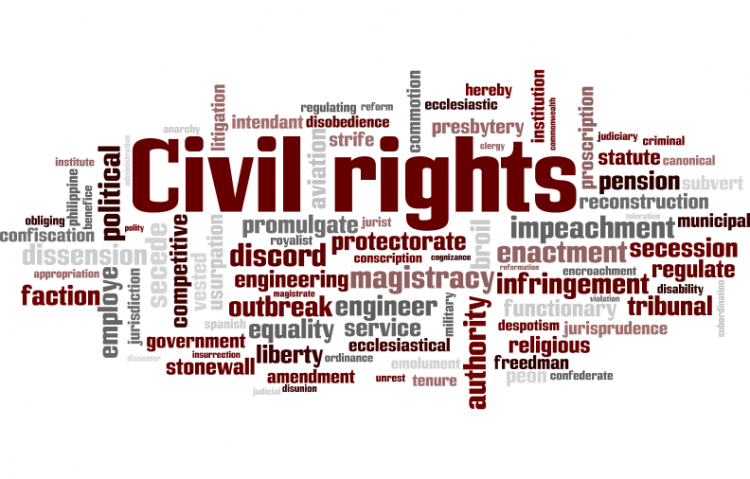
- Target:
- Montgomery County Public Schools Board of Education -and- Wootton High School Administration
- Region:
- United States of America
MCPS sponsor's the daily reciting of The Pledge of Allegiance in all of it's schools. It reads:
"I pledge allegiance to the flag of the United States of America, and to the republic for which it stands, one nation under God, indivisible, with liberty and justice for all."
In 1994, Board of Education of Kiryas Joel Village School District v. Grumet was brought to the Supreme Court. The case involved a religious village in New York who wanted government funding for a school district which promoted their religious beliefs. The Court held that funding this district was an unconstitutional support of a religion, and Justice Souter concluded that as the first amendment states, “government should not prefer one religion to another, or religion to irreligion.”
How then, could it possibly be constitutional for public schools like Wootton to include the words “under God” in the Pledge of Allegiance? The inclusion of this phrase promotes not only theism over atheism, but monotheistic sects over polytheistic ones.
The problem with the pledge is that it explicitly promotes monotheism. “Under God” is clearly a reference to a monotheistic supreme being (most likely the Judeo-Christian Yahweh), so the pledge is violating the First Amendment’s Establishment Clause in The Constitution. The pledge reinforces the idea that belief in a single supreme being is the only acceptable belief of American citizens. As an open atheist, what are my chances of being elected as President, or even as a member of Congress? There is currently one openly atheist member of Congress out of 535 total members. There has never been an openly atheist president. While the pledge is not the sole force behind this trend, it is certainly reflects Christianity’s status as the “mainstream” attitude in America. The pledge implies a religious criterion for good citizenship and thus limits my, and many others’ opportunities.
Many argue that “under God” is not actually promoting a belief, but is paying tribute to our nation’s Christian or theistic roots. The first fallacy in this reasoning is that our nation has theistic roots. America was founded as a secular nation, one in which a citizen can follow any belief system that he or she chooses, and will still have the same opportunities and rights as all other Americans. There’s a reason the entire Constitution was written with using the word God once. There’s a reason the original version of the pledge didn’t include the phrase “under God.” Why not pay homage to the secular, assimilationist intent of the pledge itself and leave out “under God”? America is a highly religious nation and this has, despite our explicitly secular Constitution and government, allowed the pledge to slip through the vice of the constitution.
Secondly, those who support the pledge for its historical value are placing this value above constitutional rights. Even if we accept “under God” as important to our nation’s groundwork, that does not automatically give it a get out of jail free card from the constitutional protections of the establishment clause. If it is unconstitutional, it should not be used, no matter how important to our history. Take for instance, slavery. The farming industry that helped start the economy of America depended highly on slavery. This was accepted and even promoted by the founders of our nation. Would it be acceptable if the Pledge of Allegiance said “One nation, under slavery, indivisible…”? Slavery was indeed a factor in starting our nation, but it is unconstitutional and thus has no place in the pledge.
The Constitution clearly prohibits the intertwining of church and state. The pledge clearly violates this. If you disagree, try replacing the phrase “under God” with “under no God.” Imagine the fit that religions and religious citizens would throw if this were the case. This too would be unconstitutional. That is why the pledge should omit any phrase concerning God at all. As Joseph McDaniel Stewart puts it, “you can't have an indivisible nation if you draw a line between the godly and godless."
The undersigned agree that the phrase "under God" in The Pledge of Allegiance constitutes as a religious belief. It is therefore violating the MCPS student Rights and Responsibilities which says:
"School-sponsored religious exercises may not be conducted. Your school will not advocate any religious beliefs. No school-sponsored activity or class will be religious in nature."
MCPS is government funded. Therefore, The Pledge is also in direct violation of the constitutional rights of students by not abiding by separation of church and state.
We demand that MCPS removes the phrase “under God” from The Pledge of Allegiance.
Sincerely,
The Undersigned
You can further help this campaign by sponsoring it
The Remove "under God" from the Pledge of Allegiance petition to Montgomery County Public Schools Board of Education -and- Wootton High School Administration was written by Benjamin Lewis and is in the category Civil Rights at GoPetition.